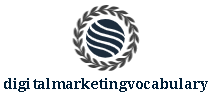What is Domain Authority? Explaining the Key SEO Metric
Domain Authority (DA) is a search engine ranking score developed by Moz that predicts how likely a website is to rank on search engine result pages (SERPs). It is a valuable metric for SEO professionals and marketers because it provides insight into the potential performance of a website in search results. Domain Authority scores range from 1 to 100, with higher scores corresponding to a greater ability to rank.
Domain Authority is determined by evaluating multiple factors, including linking root domains and the number of total links, into a single DA score. This score can then be used when comparing websites or tracking the "ranking strength" of a website over time. It is important to note that Domain Authority is not a metric used by Google in determining search rankings and has no effect on the SERPs.
Key Takeaways
- Domain Authority predicts website ranking potential.
- DA is scored on a scale from 1 to 100.
- It incorporates various factors, like linking domains and number of links.
Understanding Domain Authority
Domain Authority (DA) is a metric that predicts how well a website will rank on search engine result pages (SERPs). As experts in SEO, we'll break down the facets of Domain Authority and its significance.
Definition of Domain Authority
Domain Authority is a score ranging from 1 to 100, developed by Moz, which estimates a website's likelihood of ranking on SERPs. Higher scores correspond to a greater ability to rank.
The Importance of Domain Authority
DA is crucial for website owners and SEO professionals because it provides insight into the competitive landscape. It's a useful gauge for comparing one site's ranking potential to another and understanding the effort needed to climb SERPs.
How Domain Authority Is Calculated
Moz calculates DA using an algorithm that factors in multiple elements, such as:
- The number of external links ("backlinks") that point to the website
- The quality and relevance of those links
- The site's content quality and SEO performance
The algorithm processes these elements into a single DA score, which is regularly updated to account for changes in the website's backlink profile or the algorithms of search engines.
Improving Domain Authority
To effectively enhance Domain Authority, we need to focus on key practices and steer clear of common missteps.
Best Practices for Increasing Domain Authority
Quality Content Creation: We must produce and publish compelling, original content. Our content should be well-researched, informative, and provide value to our audience. This can lead to natural backlinks and higher user engagement.
- Link Building Strategies:
- Acquire backlinks from authoritative and relevant websites.
- Aim for a natural link profile by diversifying anchor texts and types of links.
- Engage in guest blogging on reputable sites within our industry.
On-Page SEO Optimization: We need to optimize our web pages to improve search engine visibility. This includes:
- Proper use of title tags and meta descriptions that include target keywords.
- Having a clear, coherent URL structure.
- Utilizing header tags (H1, H2, etc.) to structure content appropriately.
Website Loading Speed:
- Evaluate and optimize loading times, as faster sites are favored by search engines and users.
- Compress images and use caching to improve speed.
Mobile Friendliness:
Ensure our site is fully responsive and provides a seamless experience on mobile devices which is essential for user satisfaction and search engine rankings.
- Social Media Engagement:
- Actively promote our content on social platforms to increase brand visibility and drive traffic.
- Encourage sharing of our content to enhance reach and potential link acquisition.
Common Pitfalls to Avoid
Neglecting Technical SEO:
Failing to address technical SEO elements such as crawl errors, structured data, and security certificates can hinder our site’s authority.
- Link Quantity Over Quality:
- Avoid the temptation to acquire large numbers of low-quality links. This can be more harmful than beneficial.
- Prioritize high-quality links from reputable and relevant sources.
Inconsistent Content Publishing:
An irregular publishing schedule can lead to a drop in website traffic and engagement, negatively impacting our Domain Authority.
- Over-optimization:
- Keyword stuffing and artificial link building are outdated and penalized practices.
- Maintain natural language and link patterns.
Ignoring User Experience:
If we disregard website design, navigation, and content readability, we risk high bounce rates and poor user engagement, which can detract from Domain Authority.
By adhering to these practices and avoiding the pitfalls, we can steadily improve our Domain Authority.

 EN
EN DK
DK SR
SR DE
DE FI
FI